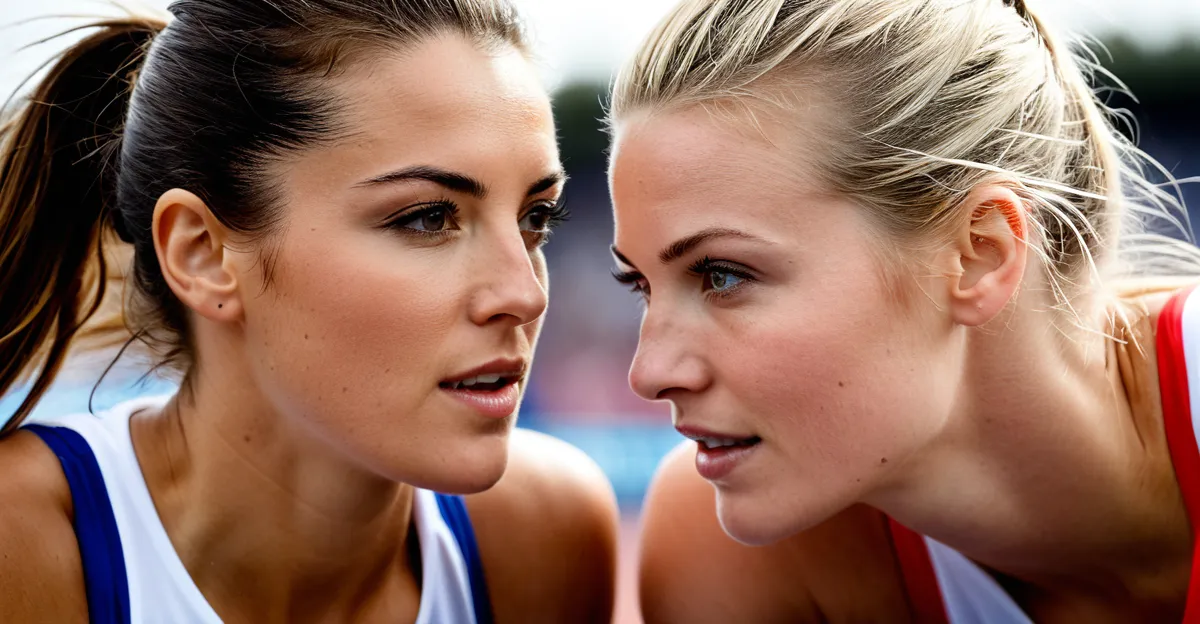Government Policies and Legislative Support for Female Athletes
Government policies in the UK increasingly emphasize gender equality legislation, directly impacting the sports sector by creating fairer environments for female athletes. These frameworks establish essential protections against discrimination, ensuring women receive equal opportunities and respect in competitive and grassroots sports.
Regarding government sports funding, targeted allocations have bolstered female participation. Funding initiatives support female athletes not only at elite levels but also within community programs, offering resources like coaching, facilities, and scholarships. This holistic approach addresses barriers that previously limited women’s access to sports development.
This might interest you : How Can UK Sports Improve Grassroots Participation?
Recent legislative changes have strengthened protections for women through clearer guidelines and accountability measures. For example, policies now mandate that sports organizations adopt inclusive practices, promoting safety and equality. These reforms also encourage organizations to monitor gender representation actively, driving transparency.
Together, these government policies and legislative efforts form a critical foundation that supports female athletes, enhancing both their visibility and opportunities. By linking UK female athlete policies to practical funding and legal frameworks, the state plays a pivotal role in advancing women’s sports nationwide and fostering lasting systemic change.
Also to read : What role does government funding play in the success of UK sports?
Training and Development Programs for Female Athletes
Targeted sports training programs UK have become pivotal in nurturing female athletic talent. These programs create specialized pathways designed to meet the unique physical and psychological needs of women in sport. Prioritizing female athletes ensures access to tailored coaching, strength conditioning, and mental resilience training critical for high performance.
Across the UK, athlete development initiatives emphasize collaboration between sports bodies and academic institutions. This partnership provides young women with access to elite training facilities alongside educational support, fostering holistic growth. Examples include scholarship schemes and integrated training schedules that balance sport and study commitments, making athlete development more accessible.
Female-focused academies and high-performance centres demonstrate marked success in elevating women to elite levels. These centres not only refine technical skills but also offer mentoring and career planning, addressing challenges often faced by women in elite sports. Enhanced support networks within these programs encourage long-term athlete retention and success, fueling a pipeline of competitive female talent. Through these dedicated efforts, the landscape for women in sports is evolving, with increased opportunities and sustainable development now firmly established.
Advocacy, Visibility, and Support Organizations
Women’s sports advocacy UK plays a crucial role in fostering greater participation and leadership for female athletes. These organizations actively campaign to break down barriers and provide platforms that empower women within the sporting community. Female athlete support organizations offer vital services, ranging from mentorship and career guidance to mental health resources, helping athletes navigate challenges unique to women in sport.
Media representation is another pillar of sustained progress. Key campaigns strive to improve coverage of female athletes in both mainstream outlets and social media, addressing long-standing visibility gaps. Enhanced media presence not only raises public awareness but also attracts sponsorships and funding, creating a positive cycle of support.
Collaboration between sports governing bodies and external advocacy groups amplifies impact. Joint initiatives allow for sharing resources and expertise, strengthening outreach and policy influence. Through these collective efforts, women’s sports advocacy UK ensures that female athletes receive recognition and support commensurate with their achievements, ultimately advancing equity and inclusion in the sporting world.
Equal Opportunities and Anti-Discrimination Initiatives
Gender equality sport UK frameworks rigorously enforce anti-discrimination policies sports, mandating equal treatment across all levels. Central to these efforts are regulations ensuring equal pay women athletes receive comparable wages and prize money to their male counterparts, bridging historical gaps. These policies not only promote fairness but also elevate the professional status of female athletes.
Specialized programs and charters focus on eliminating harassment and systemic barriers that women face in sports environments. These initiatives implement comprehensive guidelines, including safe reporting mechanisms and mandatory training, reinforcing respectful conduct and inclusivity. Sport organizations must regularly monitor and report on their diversity and inclusion metrics, enabling transparent progress tracking.
Monitoring progress includes annual reviews of gender representation and pay equity, compelling sports bodies to take corrective action when disparities arise. Through these combined efforts, anti-discrimination policies foster a culture where female athletes compete on genuinely equal terms, benefiting participation rates and career longevity. This framework empowers women in sport UK-wide, laying the groundwork for sustained equity and opportunity.
Notable Success Stories and High-Impact Progress
UK female athlete achievements have surged, marking significant women’s sports milestones nationally and internationally. For example, female athletes have excelled in disciplines such as athletics, football, and cycling, securing world titles and Olympic medals. These successes underscore the growing competitiveness and recognition of women in elite sports.
Inspirational athletes UK-wide, including team captains and individual champions, serve as role models. Their visibility challenges stereotypes and encourages youth participation, illustrating the positive cycle between achievement and aspiration. Media coverage often highlights these figures, amplifying their influence beyond the sports world.
Recent statistical trends reveal increases in female sports participation and elite representation, supported by enhanced training resources and government sports funding. Public interest and sponsorship have also risen, contributing to a virtuous circle of investment and success. Such progress reflects not only individual talent but also systemic improvement driven by sustained policies and development initiatives.
Through landmark wins and ongoing high-impact achievements, UK women’s sports continue to evolve dynamically. Their accomplishments inspire new generations, affirming the effectiveness of comprehensive support and legislative frameworks aimed at elevating female athletic excellence.




